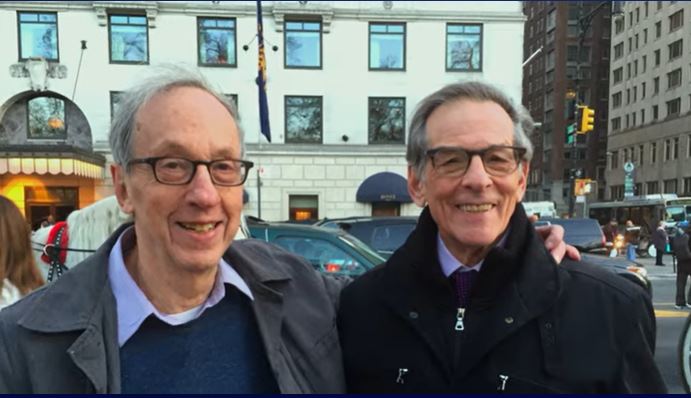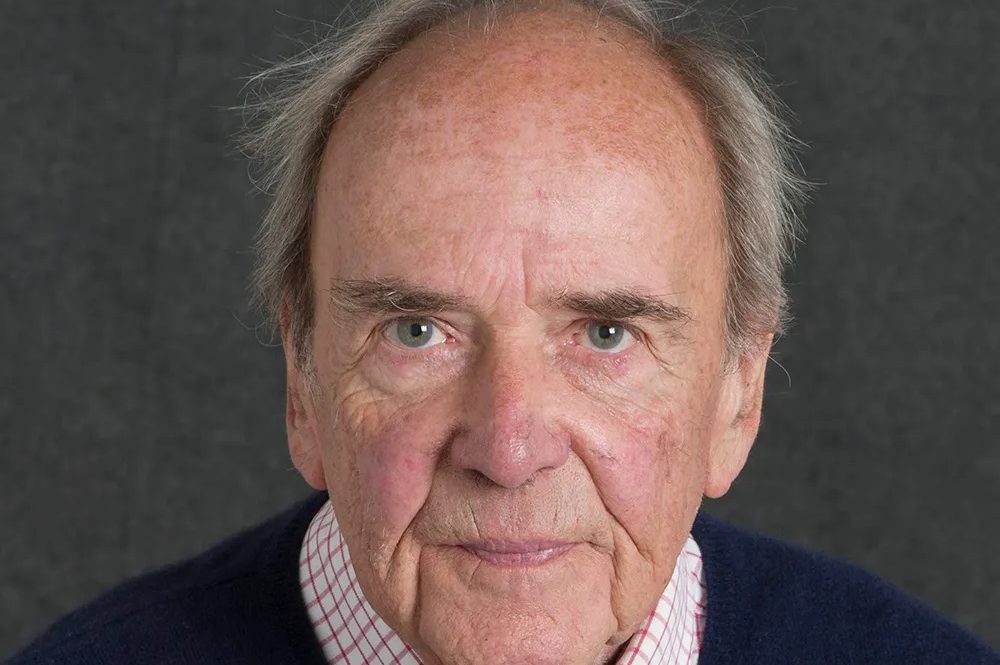Could it be that 2023’s most engaging film centers on two ninety-year-olds (give or take) from the publishing world who have engaged in a decades-long debate over the uses and abuses of the semicolon? Why, yes, it could.
Director Lizzie Gottlieb’s Turn Every Page is a charming chronicle of the fifty-year collaboration between her father, the famed editor Robert Gottlieb, and our nation’s finest historian, Robert Caro. The two shy, bookish products of New York City have, for half a century now, collaborated on two of the most influential biographies of the past half century: The Power Broker: Robert Moses and the Fall of New York and the four-volume (and counting) The Years of Lyndon Johnson. As achievements in the study of government, they are rivaled perhaps only by Henry Adams’s History of the United States of America During the Administrations of Thomas Jefferson and James Madison.
Gottlieb’s film tries to get to the question of how? According to her father: “[Caro] does the work, I do the clean up. We fight.”
The film portrays the pair as defiantly low-tech. Caro still works on a typewriter, and saves his work on carbons (or “caw-buns” as pronounced by the lifelong New Yorker). The editing is carried out in longhand, in pencil, and that pencil must be a real pencil; lead pencils will not do, thank you very much.
Of the two, Robert Gottlieb, now ninety-one, is perhaps less known to the wider public than Caro, but he has nevertheless had a remarkable career. A kind of Zelig of the New York cultural world, in between stints as president of Alfred A. Knopf and Simon and Schuster, he served as editor of the New Yorker and a director of the New York City Ballet. He has edited everyone from Bob Dylan to Toni Morrison to John Cheever to Bill Clinton (who makes a few unwelcome cameos in an otherwise enjoyable film). It was Gottlieb, we learn, who changed the title of Joseph Heller’s comic novel from Catch-18 to Catch-22. But it will likely be as the editor of the Caro volumes on Moses and Johnson for which he will be remembered.
Caro, now eighty-seven, guards the progress of the projected fifth and final volume of the Johnson series closely. The closest we get to a glimpse behind-the-scenes are a few shots of Caro and his indefatigable wife and chief researcher, Ina, among the archives of the Johnson presidential library in Austin, Texas.
What distinguishes Caro’s biographies of Moses and Johnson is that they are studies of power, and at their heart they are works of civics. As Caro once put it, “I never conceived of my biographies as merely telling the lives of famous men but rather as a means of illuminating their times and the great forces that shaped their times — particularly political power, since in a democracy political power has so great a role in shaping the lives of the citizens of that democracy.”
Caro’s are works that ought to prompt us to inquire as to where the actual power resides in the America of 2023. In some respects, the time that Caro chronicles, that of the 1950s and 1960s, seems almost quaint in retrospect. In a democracy, the power-hungry such as Robert Moses and Lyndon Johnson were where you’d expect to find them — in government. Does anyone today think real power rests with mere politicians?
The documentary ultimately takes on an elegiac tone, not necessarily because of the advanced age of the protagonists, but because the film unavoidably ends up reminding viewers of what the “news” business has devolved into. After all, Caro cut his teeth as an investigative journalist at a suburban newspaper. It was at Newsday where he received the admonition from his editor Alan Hathway to “turn every page.” But we’re a long way from that now. For proof, look no further than the exhaustive and depressing four-part autopsy by the Pulitzer Prize winner Jeff Gerth regarding the media coverage of the Trump/Russia affair.
A question that looms (a word which, like the semicolon, has apparently led to countless other Caro v. Gottlieb spats) over the film is whether Caro and Gottlieb will ultimately complete what the latter calls their “five-volume trilogy” on Johnson. For his part, Gottlieb shrugs and concedes that at this point it’s an actuarial issue. Caro says he’d rather not think about it.
And why would he? After all, he has work to do.





















